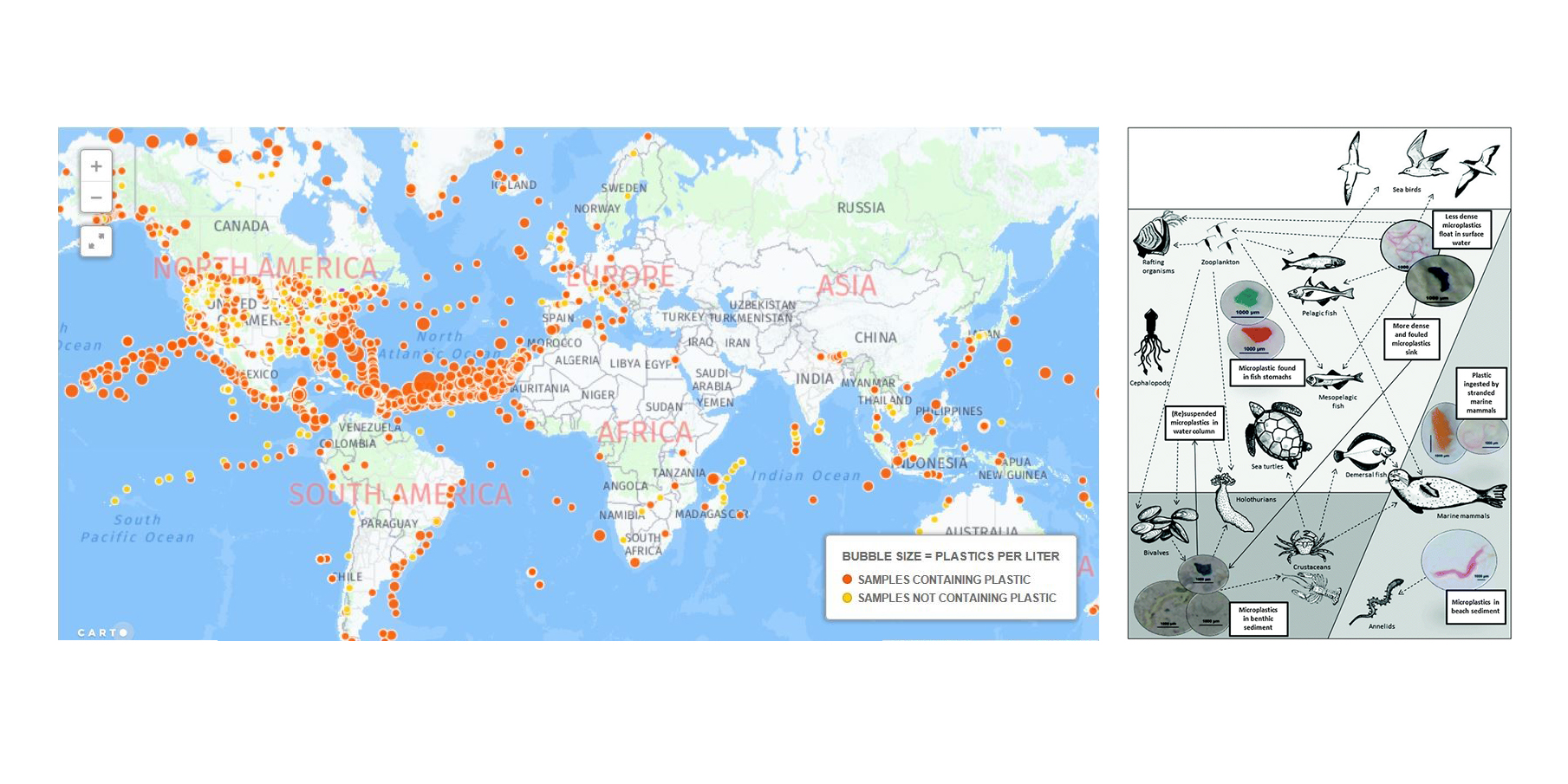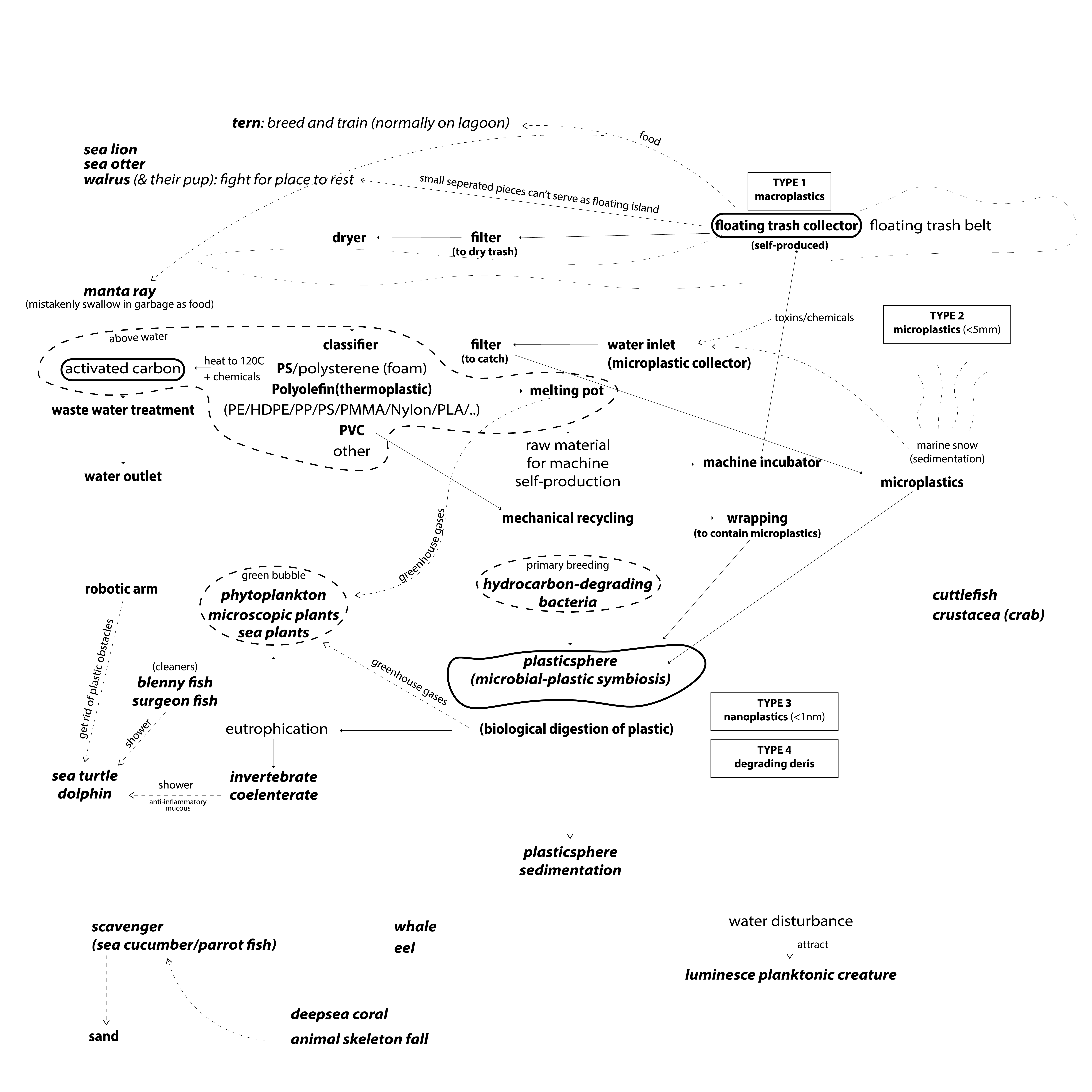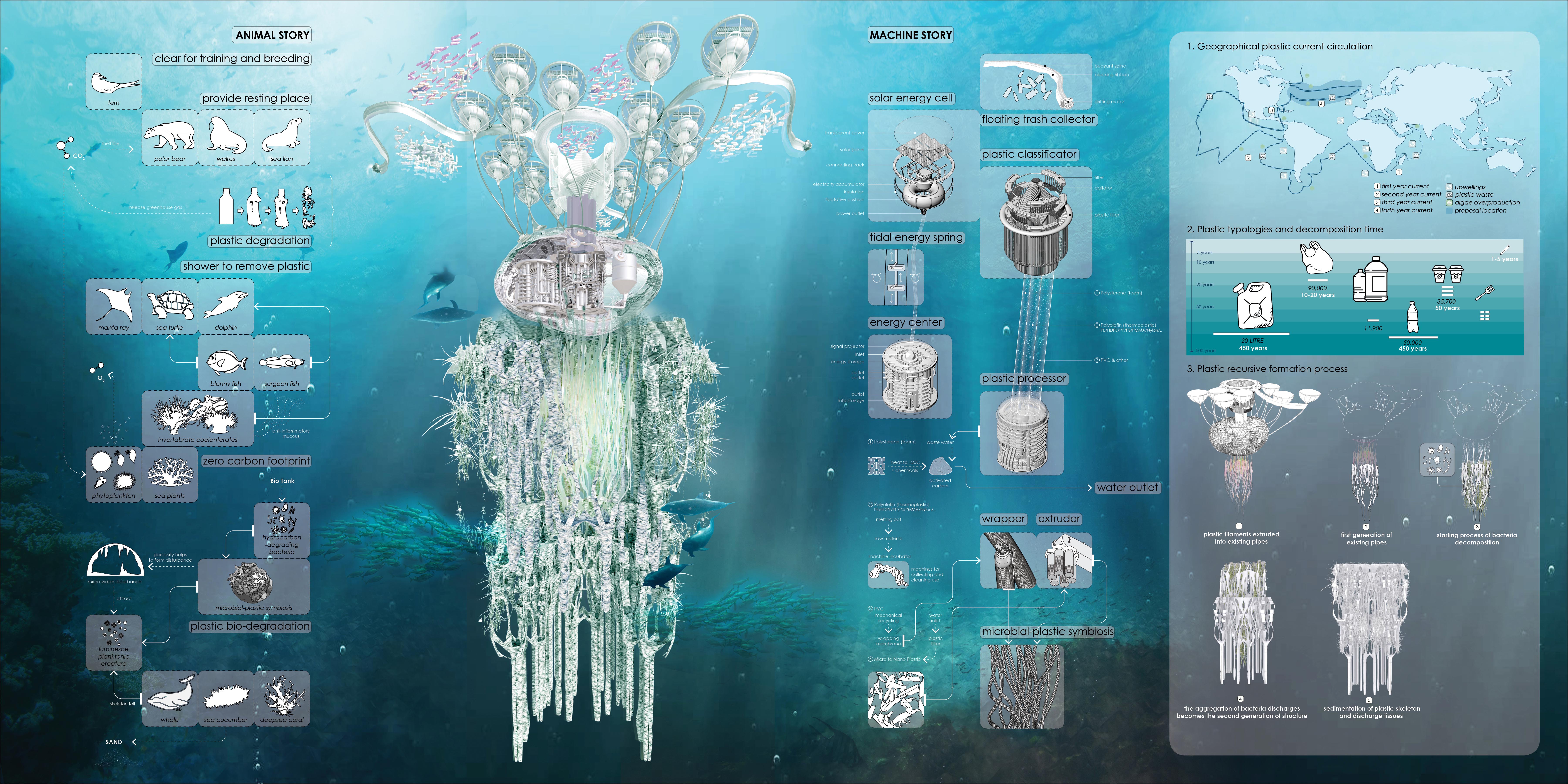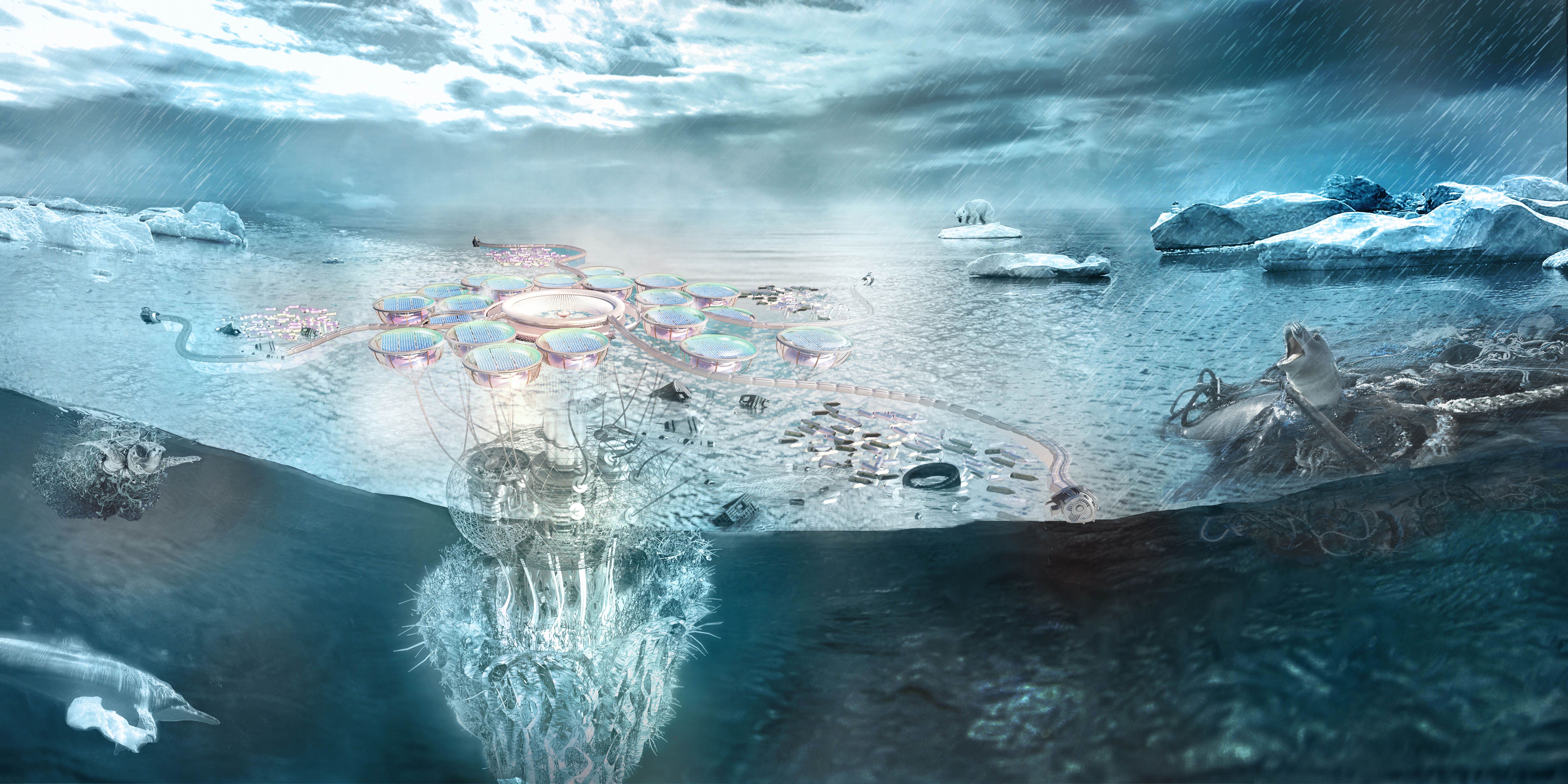If animals could talk...
Hello Human,
We hope you have realized that, forgive my words, you are f******g annoying! Our Ocean, what used to be a heavenly habitat and the birthplace of life, has now been treated as a mere sewage and dump site. No matter where we hide - from shoreline communities to deep blue regions devoid of you, plastic trash are ubiquitous. These unnatural, stubbornly persistent debris, stick on our fins, accumulate in our stomachs, and violate our senses - they are indescribably fatal. Other than the macro-plastic garbage patch that covers the surface, there are immeasurable amounts of more plastics, from micro to nano particles, in our deep waters, poisoning our environments and suffocating us. The products of your convenience has been causing huge inconvenience for all other lives on our planet. We wish you could feel our pain or empathize; perhaps imagine inhaling dust every second of your lives without the safety of your masks (which end up in our habitats too)!
Please understand we have to combine our efforts of saving the oceans before the final catastrophe.The ecosystem might have her own recycling circulations, full of powerful scavengers and degrading microbes beyond the realms of human contact and knowledge. However, the rising seawater temperatures, eutrophication, and your insane dumping rate of plastics (13 million tons per year), has pushed us and the habitats we hold dear to the very limit. In the spirit of survival and equality, we urge you to be responsible, to take up the mantle with the proposal, and join us in the efforts of saving the ocean before it is too late.
Sincerely...

A rudimentary sketch of what's happening:

And here is my reply as a human volunteer.
Dear Marine Life,
We are deeply sorry to hear of your hardships and anger. Please believe us when we say that your pain and anxieties resonates with the majority of us humans. In the spirit of inter-species collaboration, we are excited to share our preliminary proposal to you:
The Living Plastic Project aims at to gather and digest dispersed plastic debris using autonomous machines and a biological-engaging system. This is planned to be achieved in several phases.
Phase one, collecting and categorizing the plastic trash in a free-floating concentrated site.
Phase two, forming microbial-plastic symbiosis: aggregating plastics with hydrocarbon-degrading microbes and wrapping the content with recycled plastic membranes, compressed like sausages.
Phase three: digestion and sedimentation, during which plastic structures will form a series of cavity spaces that clean and accommodate marine lives. Even though the entity operates autonomously, human observation and intervention will be closely involved in every detail and phase in the process.
The location selected for the project trial is to be the North Polar-Pacific region, where the torrents and vortexes of the oceanic currents transports the trash to. The fragile habitats and threatened species such as polar bear and cold-water corals, were also taken into consideration in the formulation of our plans, and will be adequately cared for and protected. The test run of the Plasti-Scavenger under laboratory conditions was very optimistic, and we hope you will be as excited about the prospect as us. Together, we can reclaim the unfortunate waste and make the oceans clean again!
Sincerely yours
Team: Yanling Deng, Sabrina Xueyan Li

